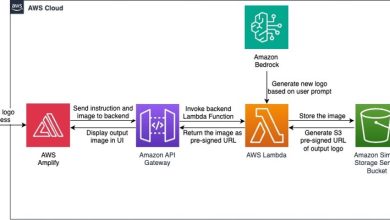AI’s Dependency on High-Quality Data: A Double-Edged Sword for Organizations

Artificial intelligence (AI) holds the promise of transforming industries and driving innovation. However, its success is deeply dependent on the availability of high-quality data. While improved data quality can unlock significant benefits, achieving and maintaining such quality presents considerable challenges. This reliance on data is a double-edged sword, providing both substantial opportunities and potential risks for organizations.
AI systems are designed to process and analyze large datasets to deliver valuable insights and drive decision-making. Yet, accessing high-quality data is often a significant hurdle. Data that is outdated, inaccurate, or non-compliant can impair AI performance, resulting in flawed insights and unreliable outcomes. The pursuit of high-quality, diverse data is not merely a technical requirement but a strategic necessity for organizations seeking to maximize the potential of their AI initiatives.
The High Stakes of Input Quality and Compute Costs
One of the emerging concerns in AI development is the risk of recursive data scenarios, where AI-generated data is used to train future models, potentially perpetuating and amplifying errors over time. The quality of the data used to train AI models is crucial; flawed data leads to flawed insights. This cyclical issue underscores the importance of sourcing high-quality data to ensure the accuracy and reliability of AI outcomes.
In the generative AI space, companies like OpenAI and Google have sought to address this challenge by securing data through agreements with publishers and websites. However, this approach has sparked legal disputes, such as The New York Times’ lawsuit against OpenAI and Microsoft for alleged copyright infringement. The tech companies defend their actions by claiming fair use, but these legal battles highlight the complexities and controversies surrounding the acquisition of quality data for AI input.
Another significant challenge in AI implementation is the immense computational power required. Training and running AI models, particularly those using GPU-based architecture, involves substantial financial investment, often reaching multimillion-dollar amounts. Only major tech giants like Meta have the financial resources to support such energy-intensive AI infrastructure. For many organizations, the high costs of AI infrastructure and ongoing maintenance pose a significant financial burden, complicating efforts to justify these investments.
Despite these considerable expenditures, the long-term return on investment (ROI) for AI projects remains uncertain. While the potential benefits of AI are well-recognized, the high upfront costs and ongoing maintenance can obscure a clear path to profitability. This uncertainty may dissuade organizations from fully committing to AI, even in the face of its substantial potential rewards.
Ensuring AI Credibility With a Data-Driven Approach
Establishing a well-structured data governance framework is essential to maximizing AI’s effectiveness within an organization. This framework must prioritize data quality, security, and accessibility, ensuring that AI systems are built on a solid foundation. However, for AI to deliver meaningful and reliable results, it must also be aligned with the organization’s specific goals and objectives. This alignment is crucial not only for achieving desired outcomes but also for fostering trust in AI-generated insights.
Accurate, complete, and consistent data is necessary for developing AI models capable of producing reliable and actionable outputs. Without this, AI models risk making flawed predictions, leading to misguided business decisions. This underscores the importance of implementing rigorous data validation processes, maintaining strict data quality metrics, and assigning clear ownership of data assets within the governance framework.
AI systems often handle sensitive information, making it vital to safeguard this data from breaches or unauthorized access. Organizations must implement robust security measures, such as encryption and access controls, to protect data throughout its lifecycle.
Accessibility is equally important, ensuring that AI systems can retrieve the necessary data when needed. A well-structured governance framework should facilitate seamless data sharing across departments, enabling AI systems to access diverse and relevant datasets. However, this accessibility must be balanced with regulatory compliance, ensuring that only authorized users can access the data.
Input data must also be rigorously tested to ensure its outputs are accurate and align with the organization’s goals. Proving the credibility of AI results is a significant challenge, as these outcomes must meet stringent standards to be trusted. Organizations should establish comprehensive testing protocols to validate AI-generated insights, ensuring they are accurate and aligned with specific objectives.
By integrating high-quality data into a secure and accessible governance framework and rigorously testing AI alignment with organizational goals, organizations can maximize AI’s potential. This approach leads to better decision-making, enhanced operational efficiency, and a stronger competitive edge while building trust in AI-driven outcomes.
About the Author
Bryan Eckle is Chief Technology Officer at cBEYONData, a professional services company specializing in improving the business of government by understanding the overlapping relationship between data and dollars. We diagnose, design, and implement processes, technology platforms, and the tools and methodologies that help government operate effectively. With expertise in implementing people, process, data, and technology solutions for organizations, Bryan is responsible for leading cBEYONData’s in identifying and solving complex problems for clients and evaluating emerging technologies to make the business of government run better. Bryan received his Bachelor of Science in Business Administration from Mary Washington College and holds an Agile certification from ICAgile.
Sign up for the free insideAI News newsletter.
Bryan Eckle is Chief Technology Officer at cBEYONData, a professional services company specializing in improving the business of government by understanding the overlapping relationship between data and dollars. We diagnose, design, and implement processes, technology platforms, and the tools and methodologies that help government operate effectively. With expertise in implementing people, process, data, and technology solutions for organizations, Bryan is responsible for leading cBEYONData’s in identifying and solving complex problems for clients and evaluating emerging technologies to make the business of government run better. Bryan received his Bachelor of Science in Business Administration from Mary Washington College and holds an Agile certification from ICAgile.
Sign up for the free insideAI News newsletter.
Join us on Twitter: https://twitter.com/InsideBigData1
Join us on LinkedIn: https://www.linkedin.com/company/insideainews/
Join us on Facebook: https://www.facebook.com/insideAINEWSNOW




